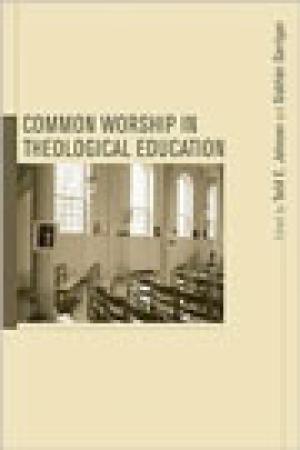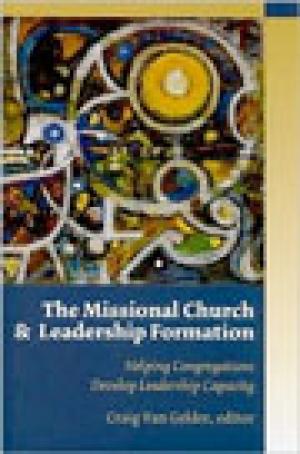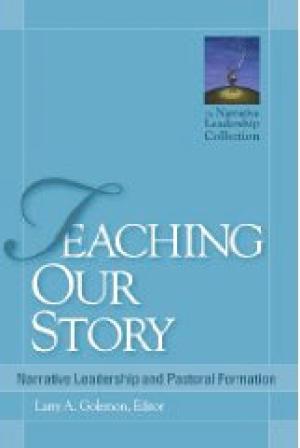Resources
How do seminarians move from imagining ministry to embodying pastoral imagination? Stories gathered from seminarians in their final year of study show the complexity of shifting from classroom work, which foregrounds theory and intellectual imagination, to more embodied, relational, and emotionally intense engagements of ministry. Stories about learning ministry articulate a process we call the birth of pastoral imagination. New ministers test their use of knowledge acquired in classroom and books within the limits of actual ministry situations. They become overwhelmed by multiple variables in situations where they must make choices and act. These moments of action are fraught with risk and responsibility for the outcomes. Articulation and theological reflection are formative for students learning the practice of ministry. Implications for theological education include making greater “use of knowledge” in ministry practice and “use of practice” in classrooms. Points of crisis in the student stories raise additional questions about how some complications and interruptions to the “birth process” may present tragic consequences.
Spiritual formation is one of the recognized benchmarks of higher education that is Christian. A communal commitment to spiritual formation is indeed part of the Christian higher education community's DNA, and is in fact reflected in the criteria for accreditation in both the Association of Biblical Higher Education (ABHE) and the Association of Theological Schools (ATS). However, as many Christian institutions of higher education begin to engage in online instruction, even offering entire degree programs online, how can they affirm their campus's commitment to the spiritual formation of students? This article addresses the question of providing intentional Christian nurture toward spiritual formation in online degree programs. The aim of the article is to inform participants of the challenges and opportunities for student spiritual formation in online degree programs so as to better equip participants to develop Christian nurture initiatives for online students from an informed perspective. To do so the article includes two parts: (a) the development of a theoretical matrix for online spiritual formation, based principally on precedent literature and the experience of the two authors; and (b) a survey of actual Christian nurture and spiritual formation models specifically designed for online programs.
Effective pedagogy in the capstone course or integrative seminar — a 1000 word response to a Call for Papers.
One page Teaching Tactic: a method for improving students' sermons.
Theological education typically includes classroom worship, a practice of great pedagogical power and curricular import. As pedagogy, classroom worship does four things. It focuses teaching and learning on God, and fosters theological dispositions necessary for sustaining that attention. Second, it rightly positions the entire class in dialogical relation to the divine Thou, in communal relation to each other, the larger church and the wider world, and in personal relations that risk transformation. Third, it frames theological education as an integrative practice of faith and learning. Finally, it invites teachers to know their students as whole persons and students to trust their teachers as spiritual guides. As curriculum, classroom worship may have greater significance than chapel worship for many students and at particular schools. It should be moved from implicit curriculum to explicit, with careful attention to the null curriculum and to the matrices of relationship within which worship has meaning.

What is the place of corporate warship in theological education? Certainly it is not unexpected to have ministry students attending seminary chapel, but what are the expectations for the students who attend chapel? Is it to form their liturgical sensibilities into conformity with a particular worship tradition or style? Or is it to provide a safe place to try things that one would be reluctant to experiment with in congregational worship? Although common worship for ministry students is almost a given in all theological schools, there are few common understandings about it goals and purposes. Common Worship in Theological Education is the first book to address the theological, pedagogical, and political issues involved in the planning and execution of seminary chapel. It offers voices from across the theological and ecumenical spectrum about chapel, as well as involving multiple disciplines in the conversation. This volume provides the first comprehensive survey of the worship issues at stake in seminary education today. The essays in this collection provide the foundation for a productive conversation within a seminary faculty or among colleagues within a theological discipline. This volume makes the case that the chapel ought to have a seat at the table when the education mission of a theological school is being discussed. So pull up a chair and prepare for a fascinating conversation. (From the Publisher)

In this volume - the third book in the Missional Church series - eminent missional church expert Craig Van Gelder continues to track and contribute to the expanding missional church conversation, inviting today's brightest minds in the field to speak to key questions concerning church leadership. (From the Publisher)

As congregations become intentional story-forming communities, they can shape the lives of millions of generative, faithful, and civic-minded adults. To do so, a framework that relates narrative work to the full range of congregational life is needed. Teaching Our Story offers such a framework, featuring essays that examine crucial shapers of narrative, outline a course in preaching that addresses crucial questions for today's church leaders, illuminate the creative power of listening to the collective stories of a faith community, and observe what can happen when first-year seminary students are asked to become story brokers--integrating the stories from their communities with biblical stories, their own personal stories, and the theological doctrines formed within the story of their tradition. (From the Publisher)
For Life Abundant, the fruit of sustained reflection among systematic theologians, practical theologians, and pastors, is an important new work that deserves attention. The volume provokes creative and critical thinking about practical theology. Its contributors conceptualize the field as a disciplined practice of imagination and skill residing at the confluence of Christian tradition and living ecclesial communities, and ask what such a construal of practical theology might mean for theological education. Given the significance of For Life Abundant, Teaching Theology and Religion asked three theological educators who are located in different regions, types of institutions and fields, to review and respond to it. Rebecca Slough describes the volume’s central questions and organization, and considers how it might contribute to the deliberations of a seminary faculty regarding a school’s curriculum. Martha Stortz shows how the process and structure of For Life Abundant are in themselves illustrative of the conceptualization of practical theology for which it argues. Kwok Pui-Lan notes the volumes strengths and goes on to probe its lacunae, particularly with regard to global, gender and multi-cultural considerations relevant to a robust construal of pastoral theology in our time. While the authors of these three reviews and responses to the volume did not interact as they wrote them, together they comprise a conversation that should be on-going. TTR invites further responses to the volume.
This manuscript is an edited transcript of a panel discussion held at a Society of Biblical Literature conference (Boston, Massachusetts, November 22 to 24, 2008). Alice Hunt begins the discussion by summarizing the content and significance of a new book by Dale Martin, The Pedagogy of The Bible (Westminster John Knox Press, 2008) in which he argues that biblical studies in seminaries and divinity schools give too much emphasis to teaching the historical critical method and not enough to preparing students for ministry by teaching them to be self-reflective practioners of the improvisational skills of interpreting scripture. Then a panel of bible scholars, including the author, conduct a wide-ranging discussion that raises questions about how biblical studies might better prepare students for ministry, as well as the proper role and appropriate pedagogies for introducing biblical studies in the undergraduate liberal arts curriculum.